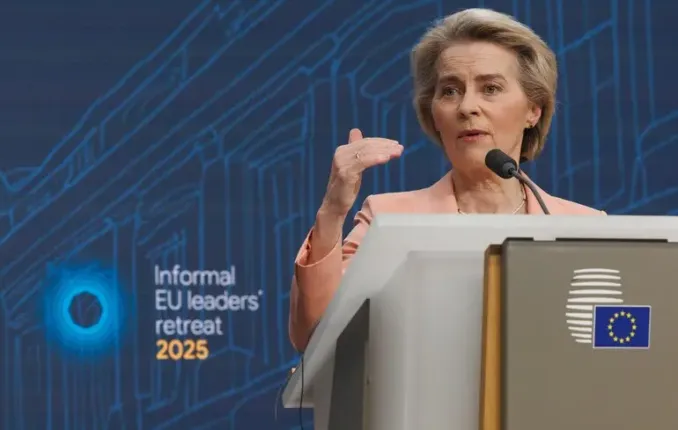“EU proposes major redesign of world trade through new global initiative”

The heads of the European Union are developing an ambitious plan for changes in the world trading system, which could radically transform the currently weak one from within, and von der Leyen called it a "redesign of the WTO". For the first time in many years, it is about creating an alternative platform for international trade relations, capable of replacing or significantly reforming the current World Trade Organization (WTO). The need for such steps is dictated by serious problems and a crisis in the functioning of the world trade institution, which has long been paralyzed by the inability to make important decisions due to the traditional confrontation of key players. The idea is contained in the proposal of Ursula von der Leyen, who presented in detail possible ways to reform the world trade order at the EU summit in Brussels on June 27. Outlining the options, the European leader highlighted the prospect of enhanced cooperation between the EU and 11 Pacific Rim countries within the Comprehensive and Progressive Agreement for Trans-Pacific Partnership (CPTPP), which is also supported by the UK. According to her, this initiative could be the first step towards creating a new, modern and more efficient world trading system with flexible mechanisms and a larger number of partners. "We can talk about the beginning of a redesign of the WTO," Ursula von der Leyen stressed, noting that any reforms should be positive and take into account the lessons learned from the current crisis. She is convinced that the global trading order can once again become open and work according to the rule of "rules-based free trade" - provided that a wide group of partners are involved who are eager to cooperate. The head of the European Commission stressed that the US has almost withdrawn from active participation in the so-called Comprehensive and Progressive Agreement for Trans-Pacific Partnership, thereby opening the door to new formats of cooperation without their participation. She added that this project could form a new "club" platform, uniting countries that are ready to work according to new, more transparent and modern rules. By the way, last year, 57 WTO members, including the UK, Paraguay and Malaysia, joined the MPIA temporary dispute settlement mechanism, which duplicates the functions of the WTO Appellate Body. However, this mechanism covers only 57.6% of world trade and does not solve global problems, which have already reached an unprecedented level. The official uncertainty of the situation with reforms in the WTO has led to the fact that since December 2019 this structure has been effectively paralyzed due to the blocking of appointments to its Appellate Body. As a result, key issues of reducing harmful subsidies in agriculture, resolving trade disputes and reforming this sector have been left hanging in the air. After long, unsuccessful negotiations, many analysts have considered the prospects for the WTO to be minimal, which has cast doubt on its continued existence. The EU government itself is now seeking to act more decisively and comprehensively. As part of the new strategy, Europe is trying not only to strengthen ties with Asian countries, but also to act as the antipode of the North American Donald Trump, who for six months has radically changed the global trading order, introducing high tariffs, and then temporarily lowering them in order to withstand the pressure of negotiations and re-impose tariffs if he does not like the conditions. That is why, on the eve of the end of Trump’s presidential term, von der Leyen has proposed a more radical tactic. She voiced the idea of creating a new global trade alliance that would unite the 27 countries of the European Union and 12 members of the WTO. According to the President of the European Commission, this format could reformat the modern world trade order, perhaps even replace the current WTO, making it more modern and effective. She emphasized that the United States is unlikely to be automatically invited to this club, which creates a new level of independence for Europe and regional partners. Obviously, such steps are not only a response to the failures of the international trading system, but also Europe’s desire to independently play the role of a key player in the global economy, strengthening its domestic positions and striving for greater stability and predictable interaction among international partners. Time will tell whether the new course will be able to overcome the challenges and launch an effective mechanism capable of withstanding future challenges of the global economy.

